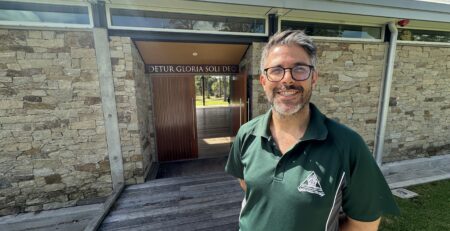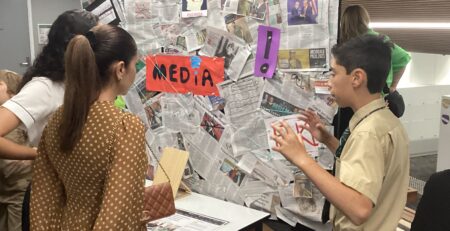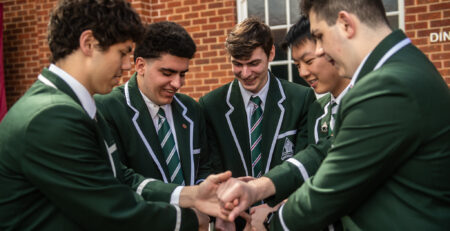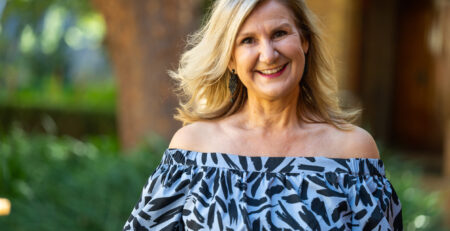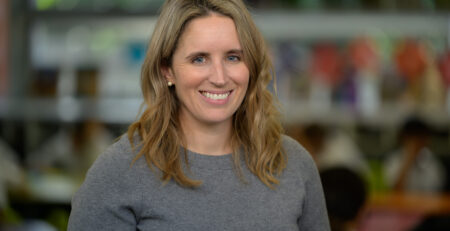Prep | Year 2 News
Unit of Inquiry
Sharing the Planet
Central Idea: Taking action can sustain and protect the world’s resources
Key Concepts: Perspective, Responsibility, Causation
In Week 8, we launched our new Unit of Inquiry into Sharing the Planet. The boys have analysed a variety of the world’s issues and shared their perspectives on the issues they believe are the most important issues facing the world today. It has been exciting to hear how each boy has used his head (thinking), heart (feeling) and hands (action) to analyse an issue of their choice in greater depth. They have also been listening to each other’s perspectives, so as to develop their thinking and empathy skills in a highly emotive unit. We have begun by collecting all the wastepaper we accumulate over a week and then leaving it in a pile in the centre of the room. It’s becoming quite a problem. I wonder who will take action and how they will fix it?

Throughout the inquiry the boys will explore the key concepts through our lines of inquiry: sustainability is a complex issue (Perspective), some resources are finite (Causation) and Action can take different forms (Responsibility). It is a unit that really encourages authentic action. Please be ready for your son’s innovate ideas and his ways to sustain the world’s resources at home.
STEAM
In the past unit of inquiry during STEAM Year Two explored sound and conductive energy through the development of their digital band.
The boys began their inquiry process by exploring the functions of Chromebook’s; determining how to log in, find the internet browser, google search and plug a cord into the USB port.
Next the boys explored Makey Makey devices, investigating the functions of circuits and developing their understanding of conductive materials.
After investigating all the technology required for their band it was time for each boy to design and construct an instrument, ensuring it contained at least two conductive elements. Once the instruments were constructed the boys then used Scratch to develop their own sound code. This code was then transferred to the instrument through the Makey Makey device. In the final week each class held their own digital bands showcasing their instruments and the sounds they have coded.
Mandarin
Over the second half of the term, Year 2 students continue to develop their communication skills to share information, experiences and feelings about school routine and community in guided exchanges. They inquire and recognise that each character is a meaningful unit used to make up ‘related words’ in conjunction with the school community vocabulary. The boys creatively apply learned words with reference to Trinity map and design bilingual sign boards for places around the school. They learn a bilingual song related to ‘Waste Disposal” which helps to instil their awareness and responsible actions within the school.
English
Does your son argue with you? Well it might be about to get a whole lot worse! Imagine them convincing you with well structured reasons and evidence as to why they should or shouldn’t. Following on from our informative reports, the boys have begun inquiring into a new text type: persuasive writing.
Our learners are exploring the form and function of persuasive writing. In the coming weeks, the boys will learn to construct their own persuasive text to try and invoke action in others. When writing persuasive texts, the Year Two boys are building their understanding of forming multiple arguments and including evidence, using strong persuasive language (modality), sentence structure and time connectives.
You can support your son at home by asking him for evidence when he is trying to convince you to do something for him.
Mathematics
In the last few weeks, our Year Two learners have been furthering their understanding of multiplication and division. Through this unit, the boys have been expanding the range of strategies they can use to help them solve mathematical problems. These strategies include using concrete materials to make equal groups, sharing objects, creating arrays, using repeated addition and subtraction, commutative properties and using skip counting to find totals. The boys have been applying these strategies to solve open ended problems. The next step in their learning is to justify which strategy is the best to use for a given problem. You might like to ask our Year 2 students: If there are 24 students in a class, how many different equal groups can they make?
Next term, we will begin a unit where we explore shapes, area and angles. You might like to look for shapes we see in our everyday lives while on holidays. How big is the park we are playing in? Is it bigger than the park we went to yesterday? How could we find out? What shapes do we see at the supermarket? Why do you think they used those shapes?
















